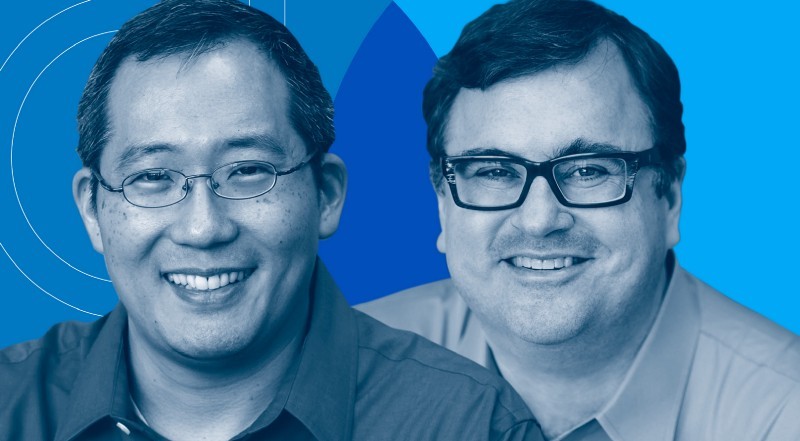
Blitzscaling | Competitive Strategy
This episode in our Greymatter Blitzscaling capsule series, with Reid Hoffman and Chris Yeh, focuses on the topic of competitive strategy. In an ideal world, you won’t have any competition. But the world is far from ideal. How should a blitzscaling company think about and respond to the competition?
Below is an edited transcript of Reid and Chris’s discussion.
You’ll hear about how Reid, Peter Thiel, and Elon Musk used speed to lead PayPal to victory in a contest with eBay’s own payments system (you can also hear Reid and Peter discuss competition and many other topics on the Masters of Scale podcast, hosted by Reid).
“We were all in and committed to making it work. We knew this was life or death for us, and we knew what were the key elements of the game to work, what were the strategies you need to make that happen, which combinations and tactics would play into that, and so therefore, we massively out-placed Billpoint on eBay’s own platform.”
You’ll learn why the most important factor in a blitzscaling business model isn’t a traditional business school metric like gross margin, but rather the speed at which the model allows the business to grow and adapt. And you’ll get specific advice on how to find, test, and hone your competitive edge.
“Go ask customers the directed question, which is what’s wrong with my product, or if I had this, would you buy it today, what price would you buy it at, why wouldn’t you pay a higher price? Because then you get the directed answer. If you go to ask someone, “Do you like my product?” they’ll think, well, I’d rather be friendly with you. “Sure, I like your product” doesn’t help you. Ask the directed question.”
Finally, you’ll hear why the ideal competition isn’t the small or weak. Small and weak competitors are often the result of a small and unappealing market. Rather, the ideal competition is strong but inflexible.
“The last point is that, which kind of competitors do you want? Well, your ideal competitors are ones that are really locked into their business model, that are kind of traditional. It’s very hard for them to change; they want to keep doing the thing they’re doing […]. If you have a competitor that’s essentially locked into their thing, where your thing gives you a unique edge, you just need to get it going fast enough and big enough.”
Greymatter shares perspectives and stories from some of the world’s top technology entrepreneurs and business leaders. Subscribe here and never miss a new episode.
Yecent 利他 专注 极简
4y您好,我是一名来自中国的移动互联网创业者,我们的项目现在用户量越来越多,如果可以得到投资,我们将成为一家巨无霸企业,我是一名中国的普通年轻人,没有什么人脉资源,听说美国的硅谷很多天使投资人,可不可以给个机会了解一下我的项目和我这个人,我觉得中国比美国机会更多,人群基数更大,对移动互联网更热衷,思维更先进,如果中国可以像硅谷一样有那么多天使投资人,一个 idea就可以得到天使投资,那么会有更多的独角兽公司诞生。希望给我们一点机会,我可以做的很好
Shareholder @ Pinetco 🇩🇪 🇮🇳
4yAwesome episode Reid Hoffman and Chris Yeh. Thanks! #askreid - What percent of companies are making a mistake by not talking to competitors in order to find out if it might make sense to join forces? It feels like that 99 % of successful companies never join forces with other companies in the early phase (pre product market fit). - Do you think it's a mistake to not talk to competitors? - How would you go about talking to competitors? What topics would you focus on and which topics would you avoid? Thanks a lot. Looking forward to your next episode! :)
--
4yGood evening everyone i need help please am looking for job in any part of the world